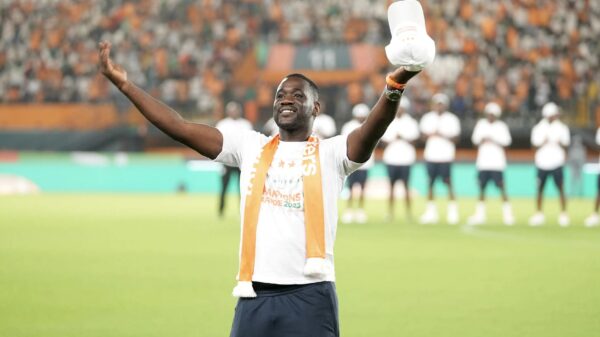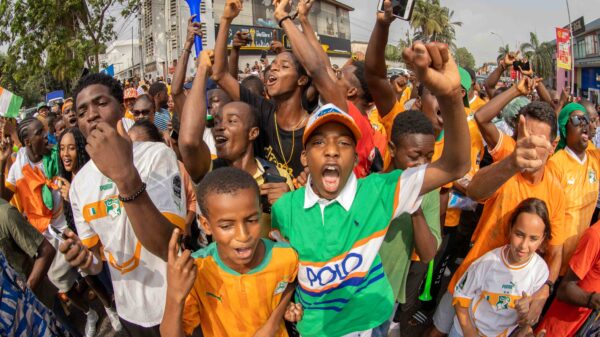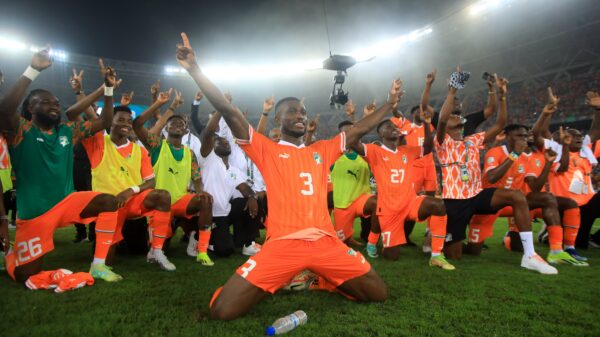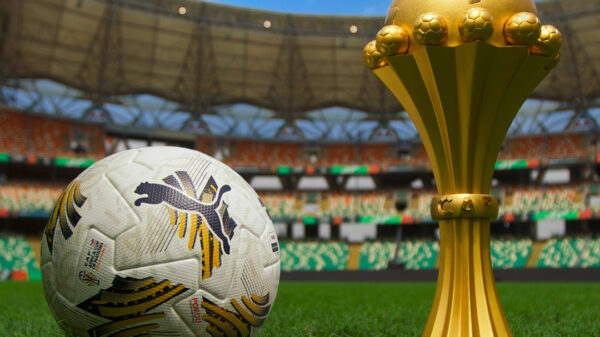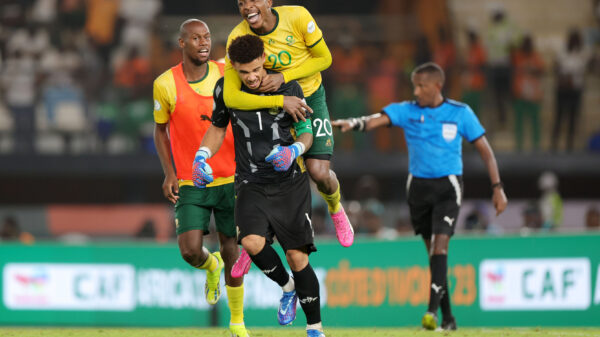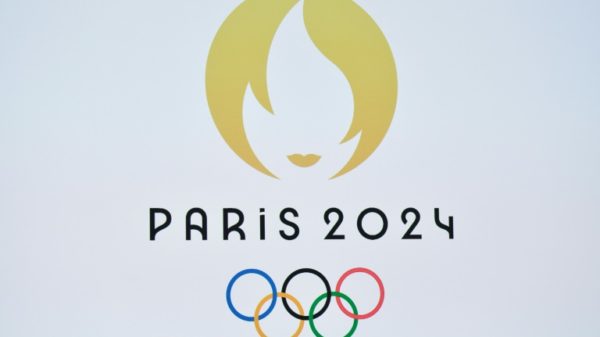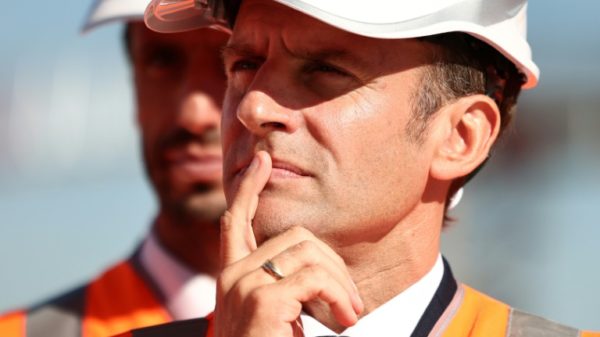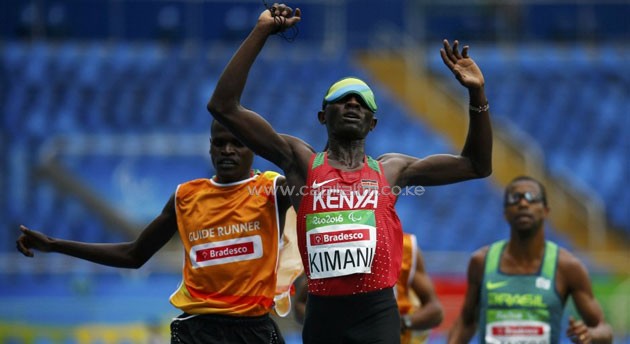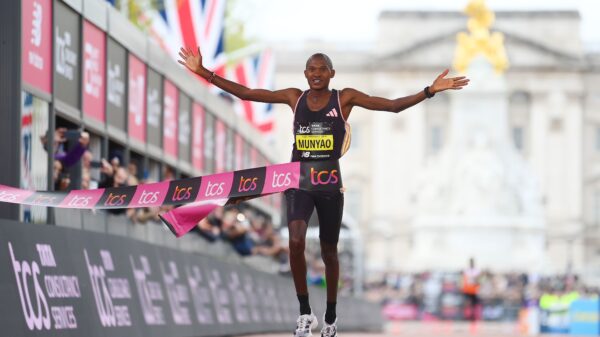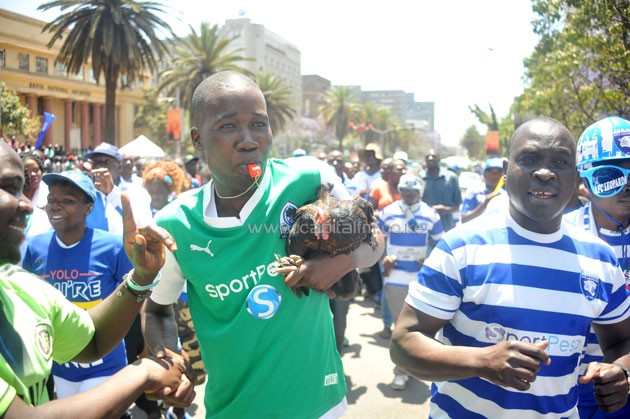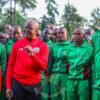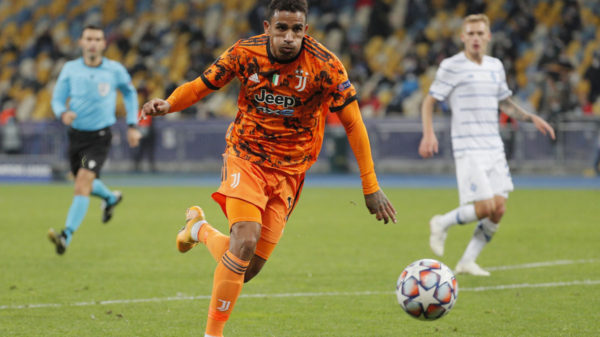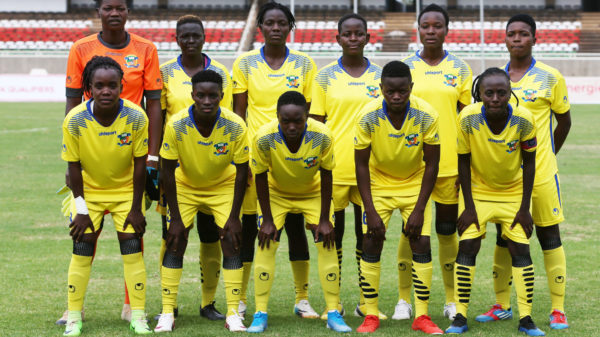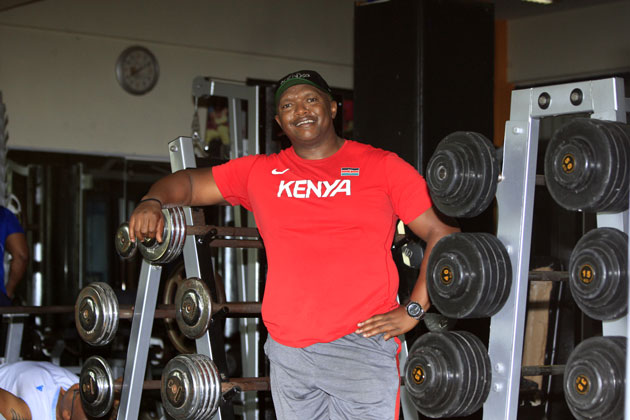
NAIROBI, Kenya, Apr 21 – Kenyan football legendary Dennis Oliech had a successful outing in the sport, but Strength and Conditioning Coach, Geoffrey Kimani believes that the former Harambee Stars skipper would have been a top notch sprinter if he didn’t play soccer.
Oliech, is famed for his athleticism and shear power and speed, that enabled him terrorise defenders during his playing days and in 2019 when he made a comeback to football, turning up for titans Gor Mahia, the former Nantes, Auxerre and Ajaccio striker said no player in the Kenyan Premier League would match his speed.

“My strong point has always been the ability to run fast and I believe over the 100m distance, there is no player locally faster than me,” Oliech said back then in 2019 when he returned to active football after two years.
And it’s from this characters that Oliech possess that saw Kimani pick him out as one of the best sprinters that Kenya never had.
“If Dennis (Oliech) didn’t get a contract in soccer he would have been a great sprinter in Kenya. He was a very fast player, you could see it in his athletism, looking at the kind of goals he scored, he would sprint past defenders, if you are a defender and your facing Dennis, then you needed to keep up with his speed and strength level, otherwise you’d will lose him,” Kimani, a former sprinter told Capital Sport.
Kimani, who is the National Olympic Committee of Kenya (NOCK), Strength and Conditioning consultant coach, is a sprint specialist and is credited for nurturing stars like 400m runner Collins Omae among others.

The coach, who was one of the technical team when Kenya topped the globe in 2015 World Athletics Championships, reveals that, the qualities that Oliech owned is what makes a complete player who can compete at elite level, may it be rugby, athletics, racket games or football because speed, strength and power are the key pillars of athleticism in any sport.
Kimani, who has worked with Mathare United and Harambee Stars, disclosed that Gor has been able to dominate in the local scene because the management was able to have a fully equipped backroom staff that saw the physiotherapist as well as Strength and Conditioning coach work in synergy hence able to fulfil the teams and coaches philosophy.
“If you want to compete at the elite level, then you have to be able to perform across all facets, nowadays every athlete wants to be strong, fast, that’s what makes you exceptional and distinguishes one from being an elite athlete to doing it for a hobby,” Kimani, an Highway Secondary alumni underscored.
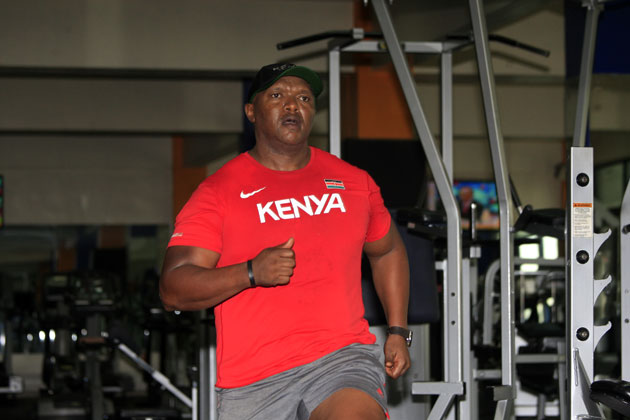
“Gor did a deliberate way of improving their performance by having a full backroom staff and this made them succeed. There are three facets of conditioning that gives you good performance.
“One is physical which entails running, endurance, sprinting and Strength. The second is the nutritional aspect, which includes working with a nutritionist on dietary matters so that they advise accordingly, the last one is recovery and it is tied to nutrition also, it is recommended for a player to get full recovery before the next session hence they should strive to get seven to eight hours of sleep.”
He added; “If you want to compete at the highest level and do it consistently, we must start embracing as many experts as possible, whichever sport it is.
“In soccer, anybody can juggle, anybody can dribble, but it’s those extra things that you bring to the table that gets you signed, they are the game changing qualities that are highly sort after.”
-Atuka-
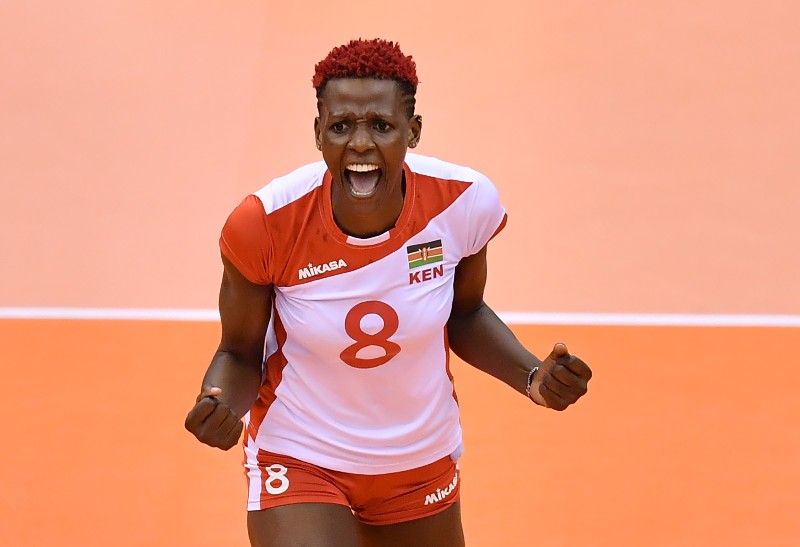
Kimani is also working with national women’s volleyball team, Malkia Strikers middle blocker Triza Atuka on her rehab journey after she underwent a successful surgery on her left knee in October last year.
Atuka, who was instrumental when Kenya qualified for the Tokyo Olympics, ruptured her Anterior Cruciate Ligament during the final leg of the Kenyan Volleyball Federation league in Kapsabet, and is happy she was handed another opportunity to grace the Summer Games after it was postponed to next year due to COVID-19 pandemic.

“My day starts at 5am, by 6am I am in the weight room, do a 1 or 2 hours shift depending on which athlete I’m having, later I could be on the pitch, track or in the athletes’ house as is the case with Triza Atuka, she is on her journey back to recovery, my day is done around 3pm,” Kimani, a father of three narrated.
“Atuka will be fit to compete for Olympics because there is time for her to recover. She is responding well.”
-Rugby-

Kimani is well known in the rugby circles, having had a long stint with the Kenya Sevens team as the Strength and Conditioning coach and is part of the team that won the first ever World Series Cup title back in 2016 at the Singapore 7s.
The coach revealed the importance of having a Strength and Conditioning Coach especially in the Sevens team, and it’s important that the tactician do accompany the team wherever they travel for competitions.
“Kenya under Benjamin Ayimba was first team in the IRB Series to hire a sprints coach in 2008, there after teams started hiring speeds specialists and they now have gone to the extent of signing out and out sprinters like USA and Australia,” Kimani pointed out.

“It’s important for a rugby player to be fit because in 7s they will cover about 1.5 to 1.8 km of various repeat speeds, contact etc. Someone needs to have superior levels of fitness in terms of endurance, speed and power. You must prepare them so that they are conditioned accordingly to match any opponent they face, if not, there are risks of injury, a well-conditioned player is able to play well and keep injuries at bay.”
“I came in at Kenyan sevens as sprints coach, my job was to go in for two or three times a week to conduct speed and agility sessions, with time my expertise went beyond speed. Because of this I went to class and started learning more about rugby and strength and conditioning for rugby.
“Flexibility is also key component in rugby, so conditioning coach goes beyond making them strong and fast only, e.g. for them to pass the ball swiftly, to pass the ball accurately and far away they must have good thoracic mobility,” Kimani, who studied his coaching in USA, noted.
-The work of Strength and Conditioning Coach (S&C) during World Series Tour-
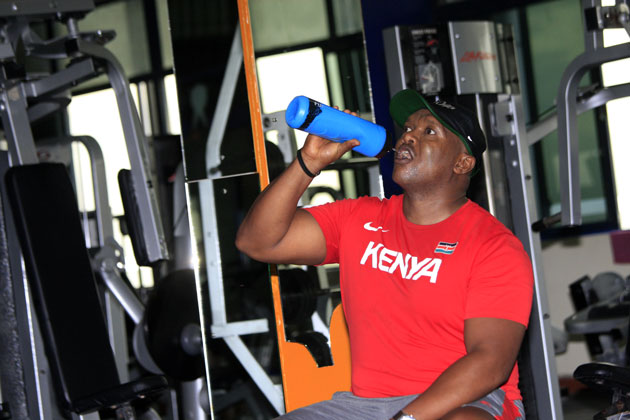
-Week 1-
“The team might take either a long or short flight, they arrive to different time zones, so they must adapt as fast as possible to the new clock, it’s up to the S&C to draw a plan, the players must adopt to the new sleep patterns.
‘Assessments are done every morning to see if there are issues that came up during the flight and into the week e.g. tight hips, hamstrings etc.
“These assessments will be repeated every morning and are done by the S&C coach working together with the physio. Where adjustments are needed the S&C will draft an individualised plan for the respective players.
“The assessments also include a check with the players on how their sleep was, and whether they had trouble getting to sleep, a weight check is also included to track any abrupt changes on the numbers.
“The S&C also does Urine test tin order to track hydration levels and make necessary adjustment through the competition week.
“On the day of competition, players meet the S&C and repeat the same protocols, they then proceed to a blowout which is essential in getting the systems ready for the tough day ahead.
“Once the team gets to the grounds, the S&C will go and asses the warm up area and also time the distance from the warm up area to the changing room because they work with strict timelines. The S&C together with Team manager will write a plan out so that the players get to the holding tunnel ready and on time for all games.
“After game one, as the players are being debriefed by the coach, the S&C and Physio will proceed to the changing room, they will prepare the recovery material which include the isotonic drinks, ice baths, supplements etc., this must done within a window of 45 minutes!.
“The players then head to the dining room to get a snack, after 15-20 minutes, they head out to the chill room to relax till an hour before the next game. Now repeat that for three games on a competition day then two weeks of tournaments, this underscores the huge role of the S&C whilst on the road,” Kimani explained.
-Week 2-
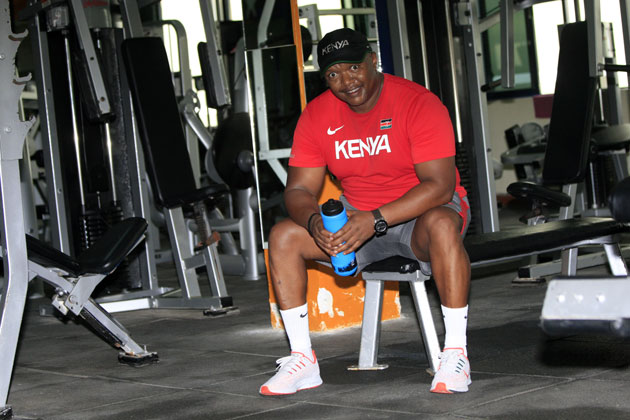
“The S&C becomes very crucial. The players have played over the weekend, on Monday they are on a flight to the next tournament. It’s the duty of the S&C together with the head coach to draw up a plan that will see them recover as quickly as possible.
-Coaches should be signed for long term-
The coach urges of federations to avoid the high turnover of tacticians, outlining that this is what affects the teams’ consistency.
“Winning the Singapore 7s in 2016 was emotional, it was satisfying because it had taken a lot of time and work behind the scenes over many years, I think God wanted to pay us back for our effort, “Kimani recalled.
“There is no reason why Kenya should not win at least two Cups in a season. Conditioning plays a key role but consistency is what is needed. Consistency in the part of the coaching philosophy is needed too. Let the coach have his time to develop what he is targeting for at least a 5 year time frame, this will also guarantee a smooth transition,” Kimani opined.
“If you look at the team that won the Cup in Singapore, six or seven players were rookies then, Humphrey (Kayange) was in that team so he was going to play two or three more seasons, there was good players to transition then who’d have now been joined by the likes of Olindi and Onyala,” he added
-Memorable moments

“I have had quite nice moments that I won’t forget, like the first Cup final in Adelaide in 2009, the team was an amateur in many terms, we did not have a gym and many other things that contributed to good physical preparations, but we improvised and adapted quite well with what we had. Other sweet memories was beating New Zealand, Fiji and South Africa for the first time in the IRB series.
“In athletics, I was privileged to be in team that won the overall title in 2015 World Championships for the first time ever, it’s been a good journey in all sports I have worked across.
-Worst moment
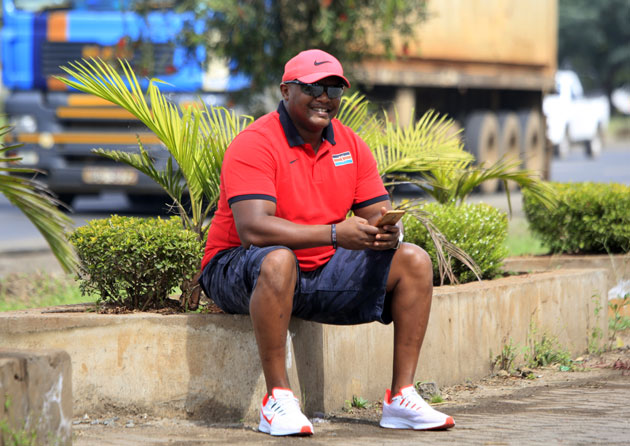
“First time Kenya 15s ventured to play against a professional team the Pumas of South Africa, we were walloped 101-5 and I was the conditioning coach then, these are those tough moments, but we learn from them.
“In 2015 I gave Collins Omae wrong tactics in 400m semi-finals at the national trials. I told him to go all out because I thought the way he was running the rounds he was holding himself too much, so I told him to go all out to see if we can qualify, he went out fast and at 350m he faded off.
“It was wrong on my part to adjust the race too much at that crucial time, these are things that really hit you in the face but we learn from them, your mistakes makes you better,” Kimani said.






